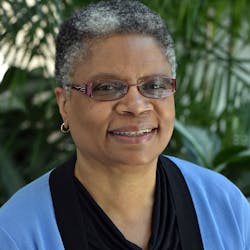Racism and racial justice: Mid-century South Carolina
- Details
- Resources
This talk offers a synopsis of the history of racism and attempts at racial justice during the mid-twentieth century in one U.S. state, South Carolina. It begins by reviewing Bahá’í perspectives about racism and racial equality as expressed during that era by Shoghi Effendi. It will then describe the diversion between these concepts and racial inequity in the U.S. South at that time. Reasons for this situation summarized here include the cumulative effects of racial suppression, such as in public education for Black children and racial segregation in public accommodations. It will note how these conditions spurred Black community activism, but with limitations; these conditions also laid the groundwork for Black South Carolinians to enter the Bahá’í Faith in the 1970s. The talk will end by suggesting implications for today.
Deepening questions
- What are essential elements of racism, as described by Shoghi Effendi in his writings about North America during that era, 1938-57?
- What was the status of racial segregation in mid-20th century South Carolina?
- What were the effects of racial discrimination in public education and in public accommodation?
- How did Black residents respond to such oppression?
- How did the Bahá’í Faith respond to these conditions during that era?
- What are the implications for today?
June Manning Thomas
June Manning Thomas, PhD, has studied and written several articles and books about race unity and anti-Black racism, such as Redevelopment and Race: Planning a Finer City in Postwar Detroit; co-edited The City after Abandonment; and the recent Struggling to Learn: An Intimate History of School Desegregation in South Carolina. She is Professor Emerita of Urban and Regional Planning at the University of Michigan and a faculty member of the Wilmette Institute.

46th Annual Conference
The views expressed in this recording are those of the presenter and do not necessarily represent the views of the Association for Bahá’í Studies, nor the authoritative explications of Bahá’í writings.